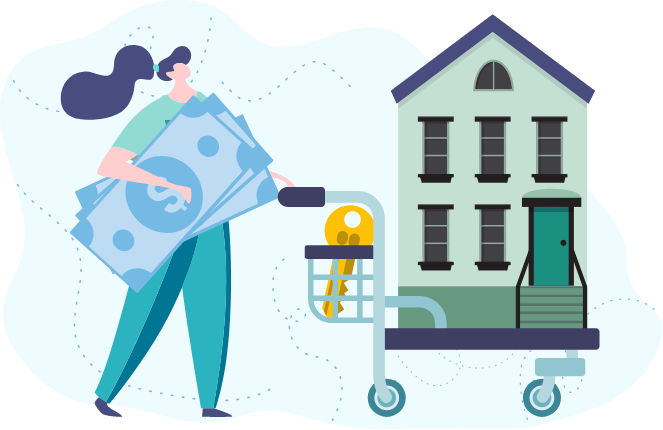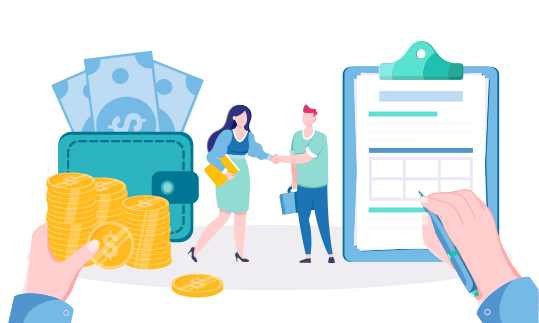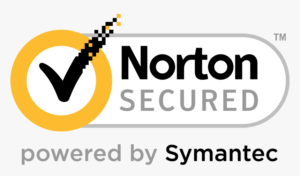The Difference Between
Secured And Unsecured Loans


There are two primary common types of personal loans that consumers can choose from when looking for one: secured loans and unsecured loans. If you’re inclining toward a secured personal loan, the bank has the right to seize the collateral you put up as security. Personal loans that don't require any form of collateral are known as unsecured loans.
There are advantages and disadvantages to both forms of personal loans. It might be difficult to choose the ideal financing option for you when so many possibilities are accessible. Before applying for a personal loan, learn as much as you can about both secured and unsecured options.
SECURED AND UNSECURED LOANS
Secured personal loans are those for which you must put up some sort of security in order to be approved for the money. If you cannot keep up with your loan payments, the lender may exercise their legal right to take possession of the collateral used to secure the loan and borrow money (house, car, savings accounts, jewelry, etc). Because there is less risk involved with a loan that is secured, the interest rate that the lender charges for the loan will normally be lower.
The term "unsecured personal loan" refers to a loan for which there is no requirement for a security interest. Many lenders will only offer you an unsecured loan if you have excellent credit, and even then, the loan terms may be too strict for some, and the interest rate is higher in these types of loans.

What is a Secured Loan
For example, buying a house—or a car—necessitates a greater loan amount over a longer period of time; hence, secured loans are common. Secured loans appeal to lenders because they reduce their exposure to risk.
When to Consider Secured Loans
Repossession, foreclosure, or any other form of asset seizure can be used by a lender if a borrower fails to pay back a secured loan. Even so, secured auto loans represent less risk for lenders; thus, they typically have lower interest rates and fewer criteria for borrowers.
Examples of Secured Loans
Mortgages
In order to get a mortgage, you'll need to put your house up as collateral to make it a secured debt. It is possible for the house to be foreclosed on if the borrower is unable to make mortgage payments on their home equity loans.
Vehicle or Car Loans
For automobiles, trucks, motorcycles, and watercraft, secured debt is widely available. There is a lien on the automobile. If you don't pay back your auto loan, the lender has the right to seize your vehicle as a form of payback.
Secured Credit Cards
A secured credit card can help persons with little or no credit history establish their creditworthiness. Collateral for secured credit cards is usually in the form of a deposit of $200 to $500 in cash, unlike traditional credit cards that only ask for good credit history. Your credit limit will be determined by the amount you deposit. Cash held as security can be depleted if a monthly payment isn't made.
What is an Unsecured Loan
Unsecured loans are a loan type not backed by collateral. To minimize the risk to lenders, they'll be much stricter when checking your credit report, your debt-to-income (DTI) ratio, and other factors establishing you're worthy of their loan.
Because of this, unsecured debt might be out of reach for those with bad credit or in a dire financial situation. Monthly payments are heavier as well, along with higher interest rates and stricter repayment terms in general. But the loan application process is easier, faster, and it gives a lot of freedom. And if you can't make your loan payments on time, there's no fear of losing your home, property, or any other valuable assets right away like in the case of secured debts (although creditors or a collection agency can still find ways to recover your unsecured debt in the long run.)
And paying back an unsecured loan late can negatively affect your credit health and score.
When to Consider Unsecured Loans
Unsecured loans, also known sometimes as personal loans, can be used for almost anything and have no collateral requirements. Some lenders will inquire about your plans for the money, while others will just want to ensure that you can repay it. They are not cheap and can come with stricter debt repayment terms, but they can be a good solution in a variety of situations.
Examples of Unsecured Loans
Personal Loans
This type of loan is known as a "term loan" or an "installment loan" because it has a predetermined repayment duration and monthly repayments that are made in equal sums. They’re known for their flexibility, but they’re much more expensive because they’re unsecured, and any missed payments can result in harsh penalties, or worse – they can lower your credit score by a considerable margin.
Credit Loans
Borrowers can utilize and return these loans as many times as they like. A few examples include credit cards and personal lines of credit at banks or credit unions.
Credit cards are a type of unsecured loan because they do not require any collateral. Instead, they rely on the borrower's creditworthiness and ability to pay back the loan. Most of your traditional credit cards are basically unsecured credit cards and are often used for small purchases or emergency expenses (medical bills, emergency repairs, etc) and do not require the borrower to pledge any personal property or assets as collateral to the credit card issuer. This makes them a popular option for those who may not have access to other types of secured loans.
Student Loans
Loans for education are typically given to students who lack assets and credit history, thus, they don't necessitate a collateral guarantee.
Speak To A Loan
Specialist Now!
Key Differences Between Secured and Unsecured Loans
The likelihood of acceptance, interest rates, and fees, as well as the necessity for a form of collateral, are all influenced by whether you go with an unsecured or secured loan.
Collateral
The main distinction between a secured and an unsecured loan is the collateral that is used as security. If you have poor credit and got some credit card debt, some online lenders might be reluctant to provide you with an unsecured loan because they consider customers with poor credit to be a higher risk. In these cases, the best option for them would be a secured loan that demands a form of collateral, which can be a home, car, or even a cash deposit.
Interest Rates
Loans secured by collateral are more likely to be paid back since the borrower has a greater incentive to do so. As a result of this, interest rates tend to be lower. However, you'll be able to secure better terms on any form of loan if you have a high credit score. Generally speaking, a credit score of 670 or more is regarded to be an excellent one based on a credit union.
Borrowing Limits
Secured loans typically have larger borrowing limits because of the stringent financial approval standards. And a secured loan will tend to offer higher borrowing limits versus unsecured personal loans, enabling you to gain access to more borrowing money.
How You Can Use the Money
A borrower's ability to put the money to any purpose is generally unrestricted when taking out an unsecured loan. The money you receive from the loan is yours to spend whatever you like as long as it's not used for criminal activities, gambling, stock purchases, or tuition.

Requirement to Qualify
If you have poor credit, an online lender might be reluctant to provide you with an unsecured loan because they consider customers with poor credit to be at higher risk.
Risk
There may be lower credit standards for borrowers who take on greater risk by taking out a secured loan.
Repayments
The details of a loan, including the interest rate, are outlined in the loan agreement. The repayments vary between loans, but overall, unsecured loans are going to be much less forgiving in terms of repayments if the borrower defaults, than secured loans.
The Best Option For You
Your current financial status, your past credit history, and your own personal preferences will determine the type of loan (s) that is most suitable for your needs. If you are certain that you will be able to repay the loan within the specified time frame, then an unsecured loan can be the most suitable choice for your circumstances. If you have poor credit, the best lending choice for you to consider is a secured loan.
On the other hand, if you do not wish to put any of your assets at risk, an unsecured loan can be the most suitable choice for you. If your credit is excellent, you might be able to qualify for a loan with an interest rate that is more favorable than the standard rate, even if the standard rate is significantly higher.
We know that the world of loans is not an easy one to wander, less when you have a small business to run. We hope this guide has given you an idea of how to approach secured and unsecured loans and take advantage of them. The Quick Capital Funding team is always available to answer all your questions and get you the loan you're looking for.
Quick Capital Funding is willing to guide you in the right direction of getting the loan you deserve.



